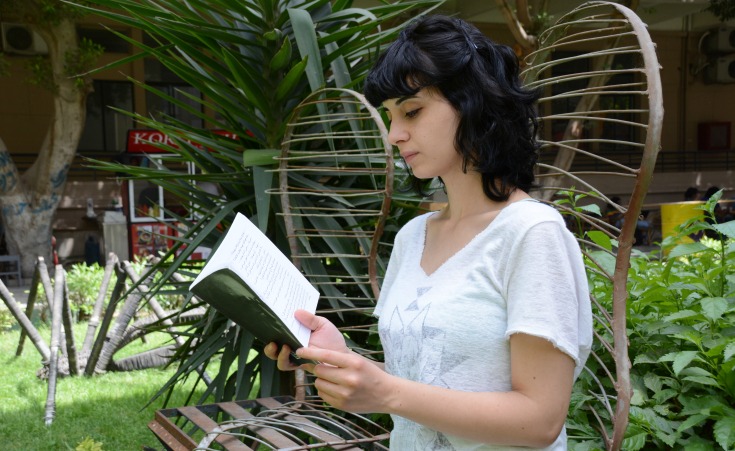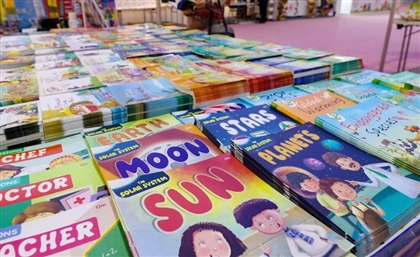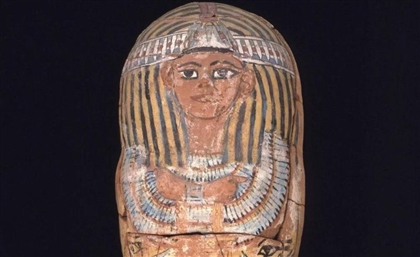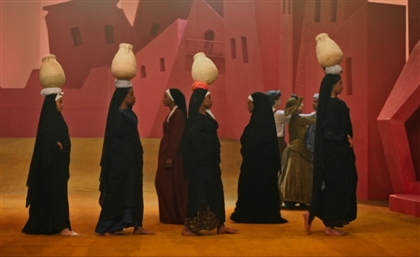7 Underrated Literary Works By Arab Authors
Sure you know Naguib Mahfouz’s 'Awlaad Haretna', but do you have any idea what his 'Al-Saraab' is about?

Crying On the Ruins [Al Bokaa ‘Ala al Atlaal] by Ghaleb Halasa (Jordan) 
Probably one of the most brilliant Arab (and perhaps international) writers, Ghaleb Halasa is sadly scarcely known among readers and was never granted the kind of literary exposure he surely deserves. The prolific writer’s chillingly daring narrative style, including outstanding descriptions, free-falling monologues, and character composure weds perfectly with the societal, political, and of course humane messages he articulates ever so eloquently in his works. Perhaps his most brilliant novel (amongst similar masterpieces) is Crying On The Ruins. The novel is composed of seemingly irrelevant short stories that merge organically halfway through, depicting the mundane struggles of life and love of the two heroes of the story, X and his lover Azza. The first person narration is taken on by X at the beginning, but near the end of the novel Halasa grants Azza that personal voice to expose the readers to another angle of the novel. What is most striking about Halasa’s style, and which really protrudes in this novel, is his very unique use of surrealism in narration – which is almost completely absent in Arab literary works and international ones in general – where time, space, and material melt and even disappear into tragic nothingness. The plot of the story, and both the heroes’ struggles with depression, love, accomplishment, and finding meaning in a tough world, coupled with the extraordinary style of the novelist, make for a historically distinct reading experience.
The Impossible Novel: Damascene Mosaic [Al Riwaya Al Mostaheela: Fosayfesaa Demashqeyya] by Ghada Samman (Syria)
Ghada Samman and the prolific Palestinian literary prodigy Ghassan Kanafani have exchanged some of the most beautiful love letters in Arabic literature for which she is most know for. However, Samman, who is also known for her poems, has managed to completely reshape the narrative rhetoric through her novel The Impossible Novel, in which she narrates, with the eyes of a little girl and a flashbacking consciousness of that girl as a grown-up woman, the little details of her life, staining in the most beautiful form her adult decisions and experiences. Following the little child wherever she goes, seeing the little details that surround her, hearing what people say around her, and tasting what she eats, especially given the awe-inspiring wildness of the child’s imagination. And so we are granted as readers, like invisible ghosts, a striking exposure of a charmingly rare form of literary narrative. The majesty of Samman’s articulation, the sensitivity to all human senses simultaneously, and their extraordinary description in a mosaic narrative gives a chilling effect of immediacy and overwhelming feeling of intimacy with the places of the plot and the heroin’s dilemmas, agony, and moments of love. The liquid, overflowing imagination bleeding into this literary work renders it into one of the most unique literary pieces that has sadly not been granted a portion of the exposure it surely deserves.
The Other Thing: Who Killed Laila Al-Hayek? [Al Shay’ Al Akhar: Man Qatala Layla Al-Hayek?] by Ghassan Kanafani (Palestine)
A revered icon of Palestinian resistance, as well as an unshakeable figure of not only Palestinian but Arabic literature, giant Ghassan Kanafani is most known for his works that merge both his selves as a revolutionary and a novelist. However, one of his least known works is a novella that is not directly associated with the Palestinian cause and the plight of Palestinians, titled The Other Thing - Who Killed Laila al-Hayek?. The thriller novella moves away from Kanafani’s classical writings and instead delves into the mundane happenings of his everyday life, following – and a little preceding – the death of a murdered woman with whom he was associated. The book, however, goes deep into the protagonist’s mind till we reach his childhood and at times get very vibrant scenes of unpleasant parts of it. Even though the reader sympathises completely with the protagonist, accused of the murder, Kanafani’s brilliant reveal-and-hide style in writing makes the reader wonder at the end whether the actual killer was the protagonist himself. The careful placement of events in a certain sequence, the portions of the plot intentionally left out, and Kanafani’s simple but punchy language creates an astounding piece of literature – real proof that the writer has mastered diverse forms of novel-writing and was able to excellently move away to other forms he is lesser know for while inducing same spirit in it.
Like Icarus [Mathal Ikaros] by Ahmad Khaled Tawfiq (Egypt)
In a fresh take that moves beyond traditional (including universal) themes, Ahmad Khaled Tawfiq explores in his science fictional Like Icarus, a mystery thriller set in a post-apocalyptic Egypt, where an aloof pathetic middle-aged man infatuated with magic and the ethereal world gradually adopts the gift of seeing the (dark) future of earth and human beings who will at some point go extinct and get replaced by cockroaches roaming and taking over the world. The novelty of the setting and the honest description of a protagonist with an abundance of negative traits such as weakness, meekness, cowardice, dullness and even poor hygiene make for a remarkably ground-breaking approach in Arab literature and modes of narration.
The Mirage [Al Saraab] by Naguib Mahfouz (Egypt)
Noble Prize winner never in need of introduction, novelist Naguib Mahfouz is perhaps most known for his novel The Thief and The Dogs, for which he was granted the most prestigious literary prize. Despite it being quite hard to choose a favourite novel, one of Mahfouz’s most interesting and literarily extraordinary works is The Mirage, which tells the story of a poorly brought up boy and his evolution into a weak-natured adult, incapable of making the smallest decisions and constantly waiting for the approval of his mother who spoilt him, or society. When he later faces problems with his marriage, and the shy timid ‘honourable’ wife of his was discovered to be having an affair with his doctor, it was only a Mahfouz classic that the woman who would come to the hero’s rescue to offer him ‘real’ love was a prostitute. A prominent theme in Mahfouz’s works is that of the ‘noble prostitute’, which we witness in this novel as well. The novel exposes through fictional narration some of the deeply ingrained toxic societal norms and traditions in Arabic societies and the way they obscure human freedom and creativity.
The End of A Brave Man [Nihayat Rajol Shojaa’] by Hanna Mina (Syria)
Most of the previous generation have definitely seen the Syrian series titled The End of a Brave Man, but actually very few realise that the series is based on one of Hanna Mina’s most vivid novels under the same title. The writer’s great love for the sea is a major characteristic of his works, in which the sea always takes place as the protagonist in addition to the main hero. In The End of a Brave Man, Mina opens our eyes and minds in his gentle and sunny language to the dilemmas of a Syrian gangster who is on a constant quest for meaning and purpose. We closely witness Moufeed’s navigation for political activism merged with his abundantly illegal actions and behaviour leading him to constantly being left out and excluded from a society, which, since his childhood, has rejected him. In the novel, Moufeed, the brave, symbolically satirises Arab societies and their inherent contradictions when it comes to social acceptance, cultural norms and habits, as well as politics.
The Nightingales’ Prayer [Do’aa Al Karawan] by Taha Hussein (Egypt)

Egyptian writer Taha Hussein has on more than one occasion stated that he was not a narrator, and that readers, writers, and critics should stop viewing his works under that light. The writer, who lost his sight early on in his childhood when, as a means to cure his infection, a religious man spat directly into his eyes for perceived healing powers, has ever since that incident and other more focused on his mildly-narrative (and predominantly documentary) literary novels by shedding light on cultural ignorance present in the society in its different forms. The novel, which narrates the stories of two sisters who eventually fall in love with the same man, one of whom gets pre-martially pregnant from him, in a strongly male-dominated rural society, is made to highlight the effects of ignorance and the way it harms mental evolution, individual will, life decisions, and intellect. Though the novel is not considered by many a great work of literature, The Nightingale’s Prayer very accurately depicts the effect of ignorance and poverty on Egyptian society and its nuanced conceptions about life.
Photo shoot by @MO4Network's #MO4Productions.
Photography by Osama Selim.
- Previous Article Egyptian-Australian Muslim Wins Big At Australian Television Awards
- Next Article Al-Azhar and Coptic Church Tackle Child Abuse in Egypt
Trending This Week
-
May 01, 2024
























